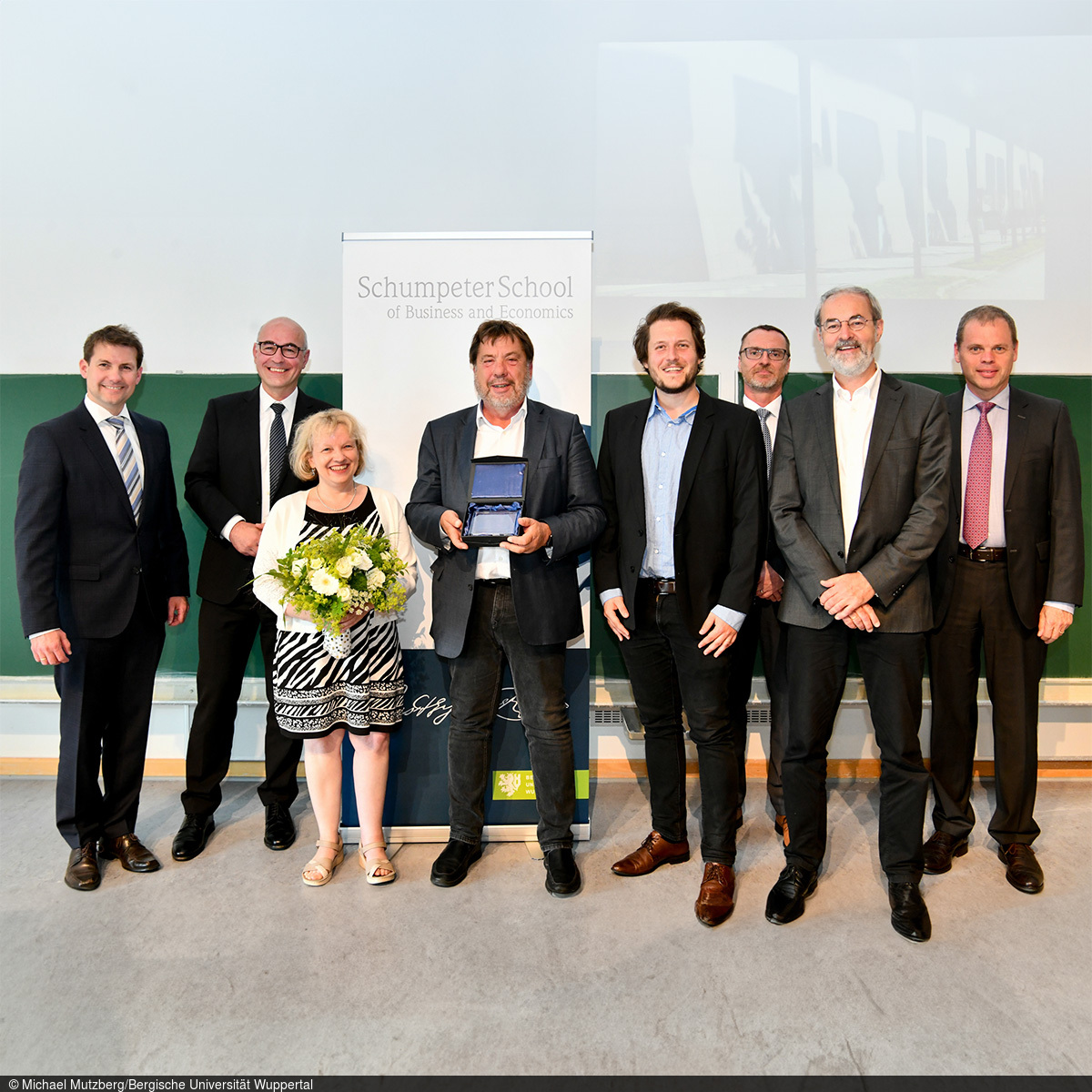Mannheim Innovation Panel Wins Schumpeter School Award
AwardsZEW Mannheim Innovation Panel (MIP) Honoured with Innovation Award
In 1993, Georg Licht and Dietmar Harhoff, then young researchers, brought together a panel on innovation data to the newly established ZEW in Mannheim and developed it into the Mannheim Innovation Panel (MIP). This marked the beginning of the first pan-European innovation survey, which has been conducted annually ever since. Now, 30 years later, the MIP receives the prestigious Schumpeter School Award.
The award is usually reserved for scholars making significant contributions to Schumpeter’s research. However, this year the jury emphasises the role of data producers and seeks to honour them. The award was presented on 23 June 2023 at the University of Wuppertal.
“It’s a tremendous honour for our researchers, who continuously enhance the MIP, to receive Germany’s most distinguished innovation award. Good data is essential for any research, and we’re delighted that many colleagues utilise it to produce exceptional scientific work,” says Professor Hanna Hottenrott, head of ZEW’s Research Unit “Economics of Innovation and Industrial Dynamics”. ZEW President Professor Achim Wambach adds, “Germany’s robust economy owes much to its ideas and innovations. Furthermore, innovations play a critical role in the global success of climate policy. We are thrilled to be recognised for the MIP, as it allows us to measure innovation and provide crucial impetus for advancing research and development.”
Insights into the innovation activities of firms
The jury’s rationale highlights the importance of the Mannheim Innovation Panel in research, emphasising that the data is not only analysed at ZEW but also made available to external users for non-commercial scientific purposes. Serving as a data infrastructure, the MIP acts as a valuable public resource for basic research, offering comprehensive insights into firms’ innovation activities to over 600 researchers, including past Schumpeter School Award laureates. This has resulted in the publication of more than 300 scientific articles in peer-reviewed international journals, alongside an extensive collection of working papers and indicator reports.
About the Schumpeter School Award
The Schumpeter School Award for Business and Economic Analysis was established in 2011 by the Schumpeter School of Business and Economics and the Schumpeter School Foundation, and is endowed with 10,000 euros. Every two years, the award recognises significant scholarly contributions, particularly those associated with Schumpeter’s groundbreaking work in the fields of innovation and entrepreneurship. The award is bestowed upon researchers whose theoretical or empirical work showcases exceptional scientific quality and relevance. Noteworthy previous recipients include David Audretsch, Dietmar Harhoff, and Rachel Griffith. The award committee comprises selected representatives from the Schumpeter School of Business and Economics and the Schumpeter School Foundation.
About MIP
ZEW Mannheim has been collecting data on the innovation activities of German firms on an annual basis since 1993. The innovation survey covers firms from various industries including mining, manufacturing, energy and water supply, waste disposal, construction, business-related services and distributive services. The survey is representative for Germany and allows projections for the German firm population as well as for individual industries and size classes. In cooperation with the Institute for Applied Social Sciences (infas) and the Fraunhofer Institute for Systems and Innovation Research (ISI), the survey is conducted on behalf of the German Federal Ministry of Education and Research. The MIP is Germany’s contribution to the European Commission’s Community Innovation Survey (CIS).
The annual innovation survey is designed as a panel survey including the same firms every year. To ensure the sample is representative it is refreshed by a random sample of newly founded firms in order to substitute firms that are closing or left the market through mergers every two years. The Mannheim Innovation Panel provides important information about the introduction of new products, services and processes, expenditures for innovations, ways to achieve economic success with new products, new services and improved processes.



